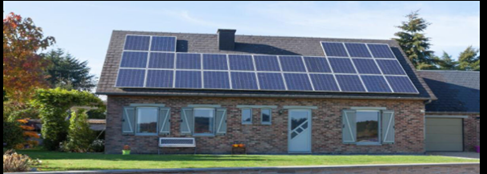Choosing the right solar inverter
distributor is a crucial step in ensuring the success of your solar energy
project. With numerous options available in the market, it's essential to
navigate through the choices wisely. Here are key considerations to guide you
in selecting the right solar inverter distributor for your needs:

1. Reputation
and Reliability: Building Trust
Begin your search by assessing the
reputation and reliability of potential solar inverter distributors. Look for customer reviews, testimonials, and any
industry recognition they may have received. A distributor with a positive
track record is more likely to provide quality products and reliable services.
2. Product
Range: Diverse Options for Every Need
A reputable distributor should offer a
diverse range of solar inverters from various manufacturers. This ensures that
you have multiple options to choose from based on your specific project
requirements. A distributor with a comprehensive product range indicates a
commitment to meeting diverse customer needs.
3. Technical
Support and After-Sales Services: Ensuring Peace of Mind
Technical support and after-sales services
are critical aspects of your engagement with a solar inverter distributor.
Inquire about the level of technical assistance they provide, whether it's
related to installation, maintenance, or addressing issues that may arise. A
distributor offering robust after-sales services contributes to a positive
customer experience.
4.
Certifications and Compliance: Upholding Quality Standards
Ensure that the solar inverters distributed
by the company comply with industry standards and possess relevant
certifications. Certifications validate the quality and safety of the products,
assuring you that they meet or exceed established standards. Always prioritize
distributors who uphold stringent quality control measures.
5.
Collaborative Relationships: Forging Strong Connections
Determine the distributor's relationships
with solar inverter manufacturers. A distributor with strong collaborations is
more likely to provide a stable and reliable supply chain. Additionally, these
relationships may offer access to the latest technologies and product updates,
ensuring that you receive cutting-edge solutions for your solar project.
6. Logistics
and Timely Deliveries: Efficiency in Operations
Efficient logistics and timely deliveries
are essential considerations. Inquire about the distributor's capabilities in
managing inventory, storing solar inverters securely, and ensuring on-time
deliveries. Timely access to solar inverters is crucial for meeting project
timelines and ensuring a smooth installation process.
7. Market
Knowledge: Navigating Trends and Technologies
A knowledgeable distributor stays informed
about market trends, emerging technologies, and changes in regulations related
to solar energy. This knowledge allows them to provide valuable insights to
customers, helping them make informed decisions about the most suitable solar
inverters for their projects.
8. Flexibility
and Scalability: Meeting Evolving Needs
Consider the distributor's flexibility in
meeting your evolving needs. A distributor that allows for scalability and
accommodates changes in your project's scope ensures that you have a partner
capable of adapting to your requirements over time.
9. Cost
Considerations: Balancing Quality and Affordability
While cost is a consideration, it should
not be the sole determining factor. Strive to strike a balance between quality
and affordability. Opting for the cheapest option may compromise the
reliability and efficiency of your solar inverters in the long run.
10. Customer
References: Seeking Assurance
Ask the distributor for customer references
or case studies showcasing their successful collaborations. Speaking with
previous clients can provide valuable insights into the distributor's
performance, reliability, and overall customer satisfaction.
Conclusion
Choosing the right solar inverter
distributor involves a thorough evaluation of their reputation, product range,
technical support, certifications, relationships with manufacturers, logistics
efficiency, market knowledge, flexibility, and cost considerations. By
carefully considering these factors, you can select a distributor that aligns
with your project goals and contributes to the success of your solar energy
endeavor.
